"Doctor Cha" Showcases a Woman's Liberation
Plus reviews of other medical K-dramas (and a bonus review of the Korean film “Yaksha: Ruthless Operations”)
For my post today, I’ve written reviews of the K-drama “Doctor Cha” and the Korean film “Yaksha: Ruthless Operations.” You may read the entire post, or just skip to the section that interests you by clicking on the specific review:
Doctor Cha ☆☆☆
Doctor Crush ☆☆½
Doctor Lawyer ☆☆
Doctor Romantic (Season 1) ☆☆☆
Doctor Prisoner ☆☆☆
Doctor Slump ☆☆☆
📽️Yaksha: Ruthless Operations ☆☆☆
As always, the ratings are based on a ☆☆☆☆ system and are based on my own personal tastes. So without further ado, here are my thoughts on what I’ve recently watched.
"Doctor Cha"
닥터 차정숙 ☆☆☆
The following review includes some spoilers.
"Doctor Cha" has a lot going on, addressing infidelity, adoption, a Ponzi scheme, the value of a stay-at-home mother, and the true meaning of friendship. Jeong-suk (Uhm Jung-hwa) is her family's doormat. Once a promising resident who had better grades in medical school than her husband, In-ho (Kim Byung-chul), she quit working to raise their two children.
Though she is just as educated as her husband, she is treated by her family as little more than a maid and a personal assistant. While her mother-in-law treats herself to the most expensive designer handbags and clothes, Jeong-suk sticks to affordable clothing. Even though she is a successful doctor's wife, the only high-end clothes Jeong-suk wears are her mother-in-law's hand-me-downs.
Meanwhile, all isn't well on the home front. She and In-ho haven't shared the same bedroom in 10 years. When she tries to touch him, he recoils. It isn't that he doesn't want affection, but rather that he's getting it from another woman.
Seung-hee (Myung Se-bin) was his campus sweetheart. But when he got Jeong-suk pregnant during a class trip, he broke up with Seung-hee and married Jeong-suk. Things got complicated when the former college couple rekindled their romance and had a full-blown affair that resulted in a child. Jeong-suk was already pregnant. The two women gave birth to In-ho's daughters around the same time.
When Jeong-suk decides to return to work again, she finds herself at the same hospital as her husband...and Seung-hee, who is also a physician.
What ensues next is a series of misunderstandings, secret romances, an attractive second male lead who has a crush on Jeong-suk, and life's general messiness that doesn't abate with age.
As the series progressed, it was infuriatingly obvious that the showrunners were trying to make In-ho a viable option for Jeong-suk to accept back into her life. This was after he had betrayed her and his family for years. I kept thinking, "If you let him worm his way back into your life, everything you've worked for may as well be thrown away." The only reason he even tried to placate her was because he realized she was no longer going to be his to boss around. It's abundantly clear that In-ho finds absolutely zero worth in the years his wife stayed home to take care of their children, his mother-in-law and him.
In-ho says repeatedly that Jeong-suk contributed nothing to his fortune and therefore shouldn't get half his assets during a divorce. He has no idea what it takes to run a household or how much time is involved in addressing all of the children's (and his ridiculous mother's) needs that extend way beyond feeding them three meals a day. Not that any of them are grateful for the meals anyhow, given the lack of appreciation they show. While it might not equal a doctor's salary, a stay-at-home mom's net worth is much, much more than anyone gives her credit for.
The Adoption Element: Early on viewers learn that Roy Kim (Min Woo-hyuk) is actually Roy Kimberly, a transracial adoptee who had grown up in the United States with his white parents. Once again, a K-drama offers no explanation as to how this man became fluent not only in conversational Korean, but in Korean medical terminology. No wonder some South Koreans wrongfully expect adoptees who return to their birth country to be fluent in Korean. K-dramas have presented this false narrative forever that ethnic Koreans of course can speak Korean — even if they grew up in foreign countries where it was never spoken. (There's more about the adoption element in the Spoiler Alert below.)
Age discrepancy: I know that this is a fictional series, but come on! The lead actress Uhm Jun-hwa is 53 years old. So who do they cast to portray her mother? Kim Mi-kyung, who is 59. Maybe casting directors view any actress over the age of 40 as nothing but a mother figure, but this is ridiculous. The two actors look more like sisters or best friends than mother and daughter. And before someone chirps in to say I'm being ageist, no, I most certainly am not. What I am saying is that if the creatives were dead set on hiring either Uhm (or Kim), they should've cast an actress who was age appropriate for the other role, even if there was only a 15-year age difference.
Airdates: Sixteen hour-long episodes aired on JTBC from April 15 to June 4, 2023. (I watched it on Netflix.)
Spoiler Alert: When Roy is reunited with his birth family, he learns that his birth mother died years ago. In Episode 14, his birth father has nothing nice to say about her. The entitled man tells Roy that it's a good thing he had been adopted, because if he grew up with his mother, he would've been poor. His words indicate that he knew of her pregnancy but had no plans to help her raise their son. Roy was her problem, not his. He belittles the dead woman, oblivious to the fact that her son is shellshocked and heartbroken.
His half siblings get straight to the point. The reason they had searched for him is because ... their father has leukemia and needs a bone marrow transplant. They want him to be the donor. Yeah, no. There are three siblings sitting right there who could donate and it's highly unlikely that none of them are a match. They just don't want to. Why should Roy, who is a virtual stranger to this man, donate his bone marrow?
It's clear that none of them view him as a relative, but rather as a stranger who they could take advantage of.
Sigh.
But he ended up donating his bone marrow to this man anyhow, not out of love or duty, but because he felt he should as a doctor whose job it is to save lives. That's what he says, anyhow. He also tells Jeong-suk that what all of this made him realize is that his adoptive parents are his real parents, and he doesn't feel that longing for his birth family anymore.
The bone marrow storyline parallels Jeong-suk's realization that her husband views her more as a possession than anything else. Early in the series, she needed a liver transplant. Her husband was compatible, but refused to donate part of his liver. And her mother-in-law also refused to allow her son to do what was necessary to keep his wife alive. Ultimately, it was thanks to an anonymous donor that Jeong-suk didn't die.
But when she is in need of a second liver transplant, both Roy and In-ho vie to be the one to donate theirs to her. This time, In-ho seemed sincere in wanting her to survive. That it took this long, though, doesn't provide much room for a redemption arc.
They divorce, and In-ho tells her, "I'm sorry, and thank you for everything. You lacked nothing as either my wife or as our children's mother." And that statement shows that as much of a self-centered jerk as he was, he finally realized what he had lost. But it's too late. While it was sad for him to lose her, it was the beginning of some growth for him and freedom for her.
In the end, Roy confessed that he liked her, but she turned him down. Three years down the road, he is seen with his own girlfriend. And Jeong-suk has opened her own medical practice that's on the second floor of the healthy cafe she also owns.
Rather than ricocheting from one man to another, Jeong-suk finally made the most important choice. She chose herself.
“Doctor Crush”
닥터스 ☆☆½
Hye-jung (played by Park Shin-hye)
Ji-hong (played by Kim Rae-eon)
Yoon-d o (played by Yoon Kyun-sang)
I’ll be honest. I saw a clip on YouTube that enticed me to watch all 20 episodes of “Doctor Crush.” In less than a minute, Hye-Jung brings a boy to his knees after he manhandles one of her friends. Another boy, who likes Hye-Jung, thinks he’s being chivalrous by telling his friends, “She’s mine. Don’t touch her.”
In most dramas, the girl would have thanked him for coming to her rescue. But Hye-Jung doesn’t need rescuing. She tells him, “You’re so embarrassing. Why am I yours? I’m mine.”
I wanted to see more moments like this. And for a few episodes, “Doctor Crush” really delivered. But when it delved too far into romance and some amateurish Nancy Drew-style sleuthing, the series lost momentum.
The Good:
The leads are both very good and their physical characteristics lend themselves well to the storyline. Both Hye-Jung and her mentor/love interest Ji-Hong overcame difficult childhoods to reach the top of their careers. The actors who play them — Park Shin-Hye and Kim Rae-Won, respectively — have expressive faces that evoke heartache, without their having to utter a sentence. They are able to make even some of the weaker storylines resonate. And, when they cry, viewers will need a tissue or two as well.
The Bad:
This series is full of bad characters full of bad intentions: the money-hungry father-son duo trying to take over the hospital; Ji-Hong’s uncle, who steals his inheritance and then dumps him off at an orphanage; Hye-Jung’s father, who abandons her; and even Hye-Jung’s raison d’etre for much of the series: revenge.
Yes, we all know that hospital residents and interns are overworked. But I really disliked how the physical abuse of the interns was played off for laughs. It is never appropriate for a hospital resident to hit his underlings on the head (or anywhere), because they didn’t meet expectations.
The Ugly:
I find it offensive when people are mistreated because of their looks. In “She Was Pretty,” the female character is treated poorly until she has a makeover and becomes attractive again. Everyone accepted it — sadly, even her. Here, one of the second-year medical students is called a pig, because of his size, and is dismissed by a woman who probably still remembers what it was a like to be an outcast in high school. I know this happens in real life. But it is really disconcerting to watch a series where this type of ugly behavior is not only tolerated, but played for laughs.
When the series opens, Hye-Jung is a neurosurgeon, who is reunited with her former high school teacher, Ji-Hong, who is also a neurosurgeon at the same hospital. The two share a complicated history. He was a boarder at her grandmother’s house. Though nine years apart in age, the two become friends, but never crossed the line between student and teacher. When a jealous classmate starts an online rumor that the two are having an affair, Ji-Hong resigns. Though she did nothing wrong, Hye-Jung apologizes. Ji-Hong rightly points out that he will be just fine.
“In today’s society, who do you think will suffer more from this scandal?” he asks rhetorically. “The man or the woman?”
Though she was uninterested in her studies and often got into trouble, Hye-Jong was smart and overcame her troubled home life. After her mother died, her cold father did nothing while her stepmother beat her. Not wanting to take responsibility for a strong-willed teenager, he severs ties with her, dumping her off at his mother’s house and telling her not to come back.
Later, as she is pursued romantically by Ji-Hong, Hye-Jung tells him, “My biggest fear is being thrown away.”
Though Ji-Hong appears to have led a charmed life, his youth was filled with sadness:
He has survivor’s guilt. His parents died in an automobile accident, where he was the only survivor.
He has trust issues. He spent a year at his uncle’s house, before being shipped off to an orphanage. His uncle would also steal his inheritance — the house he grew up in — justifying it as payment for taking care of him for that year.
He knows what it is to grow up a loner. He was beaten up on a regular basis for being the smartest kid at school and an orphan. How dare someone so low on the food chain do so well?
His life fared much better after he was adopted by a wealthy doctor, who would die trying to save his hospital from becoming a haven for the rich at the expense of the indigent.
As is common in many Korean dramas, there is a love triangle. Both Ji-Hong and Yoon-Do — a handsome, but emotionally detached surgeon from a powerful family — are in love with Hye-Jung. The plot line was tedious, because it was obvious that Yoon-Do is a narcissist who loves no one more than himself. He loved the challenge of trying to get the girl who wasn’t interested in him, despite that fact that she told him point blank that she wasn’t interested.
Some might see his persistence as romantic, but how different are his actions from those of the teenagers (referenced in the first sentence) who wouldn’t leave the uninterested girls alone?
Best line:
A nurse refers to Yoon-Do as looking like a Siberian Husky. And if you were to pick an animal who he most resembled, she got it spot on!
Product placements:
ENOUGH with the Subway product placements. It was obnoxious enough in “Descendants of the Sun,” but the sandwich chain almost gets more screen time than some of the actors. No matter how much they try to dress the sandwiches up, the subs do not stack up to Korean food in general or many of the Western-style eateries in Korea. By comparison, the placements for phones and cosmetics were more subtle.
Original airdates:
The 20 episodes aired on Korea’s SBS from June 20 to August 23, 2016.
Hye-Jung’s high school nemesis is the daughter of the doctor who she blames for killing her grandmother in surgery. As a physician, she knows that doctors can’t save all patients. But when he refused to behave with compassion towards her grandmother’s death, Hye-Jung vowed to seek revenge on him. She transferred to his hospital, in the hopes of getting even. At the end of the series, she assists in a surgery that could’ve left him crippled. He survives, of course, but it is implausible to think that after all they had been through, he would accept her even being in the operating room during his surgery.
The writers do a good job of trying to manipulate the viewers’ feelings. Even after showing us how horrible Hye-Jung’s father was to her, they try to make him appear sympathetic when he reappears in her life as an old man, who has seemingly turned his life around. (They do the same with the father-son doctor team who were responsible in many ways for the death of Ji-Hong’s father.)
Instead of having Hye-Jung forgive her father for his awful treatment of her as a child, she tells him that she will always want what is best for him. But that in order for her to move on, she wants nothing to do with him or his family. I am so glad the writers didn’t choose to have her reconcile with her father. When a parent has done this kind of damage to his child’s life, he can’t expect to fix it by bringing a few bowls of soup and saying, “I’m sorry.” You can be sorry and become a better person, but that doesn’t give you the right to your child’s love.
Standout episodes: Much of the series revolves around two factions: Ji-Hong and his father wanting everyone to get hospital care, regardless of whether they can pay for their stay; and the other father-son team who want to privatize hospital care “like in America” so that they can make more money. There’s a three-episode arc (episodes 13 to 15) that deals with two young brothers with brain cancer. Their father (Namkoong Min) is struggling financially, trying to pay off the hospital bills for his late wife’s cancer treatments. Unable to pay for his sons’ treatments, he contemplates suicide, knowing that there is a program to help sick orphans. When a father is worth more dead than alive, there is a huge issue.
The final episode ends with the comatose victim of an automobile accident giving birth to a baby. She had been kept alive so that the baby could be delivered and dies shortly afterwards. Watching her husband (technically, they weren’t married yet. The accident occurred on the way to their wedding) grieve, I wondered if he was wealthy and, if not, how he would pay for the months his wife was in the hospital and the neonatal care his premature baby would need. Would he end up like the father mentioned above?
Adoption element: Ji-Hong is the adopted son of wealthy doctor. The doctors trying to wrestle away his power at the hospital say that Ji-Hong isn’t a threat, because he’s not his “real” son — that the adoptive father could let him go at any time since he’s not a blood relation. This touches on the stigma of being an adoptee in Korean society, even in the 21st century.
Hye-Jung’s mother got pregnant when she was a college student. Instead of putting the baby up for adoption or having an abortion, she married her boyfriend, who proved to be a horrible father. After her mother died, her dad married a cruel woman who beat her. When she got in trouble again in high school, her father got fed up and dumped her at his mother’s house.
“Dr. Romantic”
(낭만닥터 김사부): Season 1 ☆☆☆
After a great start, the second and third episodes lagged a big. I was debating whether to just skip to “Dr. Romantic” Season 2, but I'm glad I stuck it out. This series focuses on genius doctor Boo Yong-joo (Han Suk-kyu), who had been set up to take the fall for a patient’s death. Because he refused to play the kiss-ass game at work, he loses his job. He changed his name and went to work at a small rural hospital, where he’s known as Dr. Master Kim.
Later, Kang Do-joo (Yoo Yeon-seok) is sent to the smaller hospital as punishment. He had been forced to operate on a patient who couldn’t be saved. The incompetent head surgeon didn’t want to mar his own reputation and forced the younger doctor to do it. Do-joo is promised that if he quietly bides his time in the podunk town, he will return to the main hospital in Seoul. But when he slowly figures out that Dr. Master Kim is actually the legendary Dr. Boo, he decides to stay and learn from him.
My favorite storyline was in Episode 8. Doctors initially believe that a gangster infiltrated the hospital and stabbed a man. But in reality, the victim had raped the man’s wife and 11-year-old daughter. But because the rapist was a first-time offender — first time being caught, anyhow — he was only sentenced to three years in prison. Of course, he was out in just two years for good behavior and for being a model prisoner. The husband and father threatens to kill Do-joo’s seonbae, Yoo Seo-jeong (Seo Hyun-jin), unless Dr. Master Kim stops operating on the rapist. But the latter continues. It’s his job and duty to save lives, no matter how heinous the person may be.
He says, “You can do whatever you want after the surgery is complete. But even with the surgery, the rapist will live a miserable life unable to do the things he used to do. Or, you can kill the rapist, and then your daughter won't see her father for decades and your wife will have no husband.” (I watched this on Viki)
“Yaksha: Ruthless Operations” ☆☆☆
A fast-moving action film, “Yaksha: Ruthless Operations” is a spy thriller full of special ops, backstabbing and political intrigue. Last year, I stopped watching about 20 minutes into the movie, because it didn’t hold my interest. But when I went back to it this year, I found it to be thoroughly entertaining. Is this a prestige film? Absolutely not. But it was a fun ride with a (straight-laced) fish-out-of-water concept.
Directed by Na Hyun, “Yaksha” begins with an upstanding prosecutor whose goal is to bring down a corrupt chaebol head. When he fails, he is demoted to a smaller branch where there’s little to do — which some of his new colleagues view as a plus.
But Ji-hoon (Park Hae-soo) is ambitious and wants to return to his previous position. When his boss turns down an offer to monitor an international gang of rogue black ops in Shenyang, China, Ji-hoon takes the assignment, but with the condition that he will return to Seoul if he is successful.
To say that he is a out of place is an understatement. Used to fighting with his verbal skills and not his fists, Ji-hoon is in over his head when he tries to “help” the black ops leader Kang-in (Sol Kyung-gu). Kang-in has a highly skilled team (including GOT7’s Park Jin-young) that has no need for a by-the-book attorney. They, along with the viewers, are surprised when they see Ji-hoon use his judo skills to fight back. But more often than not, he relies on Kang-in to save him. (There’s a rather amusing vignette where Ji-hoon is thisclose to becoming the victim of human organ traffickers. I know that’s not a funny topic, but the raggedy gang who targets him is funny and shows up later in the film as quasi allies.)
In a world where no one is who they seem to be, a third player is introduced: Japanese spy Ozawa Yoshinobu (Hiroyuki Ikeuchi). Is he the mole that Ji-hoon and Kang-in are searching for? Or is Yoshinobu also a rogue op whose main concern isn’t helping his country, but rather helping himself.
The cinematography is on point, separating the different worlds that Ji-hoon moves between, from the stark Seoul offices to the neon-lit shootouts in Shenyang.
There are not-so-subtle references to the animosity that still exists between South Korea and Japan. And at one point, I wondered who the real villain was: Kang-in, Yoshinobu, or the entire Japanese peninsula.
Transliteration: I’m not sure why this film title was transliterated as Yaksha, when the Korean pronunciation is Yakcha.
Release Date: This film was originally planned to release theatrically. However, due to the COVID-19 pandemic, it was held for a while before finally being released on Netflix on April 8, 2022. Running time: 125 minutes.
“Doctor Lawyer” ☆☆
Mild Spoilers ahead...
There are parts of this series that are well done. The plot is intriguing. Yi-han is a skilled surgeon who is a ghost doctor for the chairman's incompetent, milquetoast son. He puts in years of work waiting for the pay off. But there is none. Instead, he's set up by the chairman, who apparently controls everything in South Korea. After Yi-han's patient — who happens to be his girlfriend's younger brother — mysteriously dies after a successful heart transplant, Yi-han is set up, prosecuted and imprisoned.
Since he can't practice medicine anymore (or can he?!), he switches careers and becomes an attorney who specializes in dealing with criminal medical cases.
OK, all of that was fine. And the series stars one of my faves, So Ji-sub, who shares great chemistry with leading lady Im Soo-hyang, who plays a prosecutor. So why was I disappointed?
One big reason is Lee Geung-young. Who? Oh, you've seen him in a ton of K-dramas, including "Vagabond," "Again My Life," "Vincenzo" and "Hyena." He often plays the seemingly kindly 60something silver-haired man who turns out to be evil. In real life, he was arrested in 2002 for having sex three times with a minor, who he had promised a role in one of his upcoming films. He was arrested and given a suspended sentence of 10 months in prison with two years of probation, and 160 hours of community service.
Has he rehabilitated? I have no idea. But what I do know is that his acting skills aren't good enough to make up for his past. His speech pattern is annoyingly stilted. Actually, all three male leads share that same speech pattern on this show. When So, Lee and Shin Sung-rok are in scenes together, their dialogue is unnecessarily theatrical and labored, making this K-drama feel more like a daytime soap opera than a medical murder mystery.
Anyhow... If you've watched this series, let me know whether you liked it or not. As I always say, a review is just one person's opinion. There is no right or wrong when it comes to judging something subjectively.
Airdates: Sixteen 70-minute episodes aired on MBC from June to July 23, 2022.
“Doctor Prisoner”
닥터 프리즈너 ☆☆☆
“Doctor Prisoner” debuted with a nationwide rating of 8.4% on March 20, 2019, according to AGB Nielsen Media Research. Figures for the April 11th episode saw viewership rise to 14.7%. It was the most-watched series in its time slot, where it faced anemic competition from SBS’ “Big Issue” (3.3%) and MBC’s “The Banker” (5.2%).
One reason for the popularity of “Doctor Prisoner” may be that it has incorporated some real-life news into its story arcs, similar to how American shows such as “Law & Order” draw ideas from sensational headlines. One of the biggest stories in Korea at the time was the Burning Sun scandal, where well-known K-Pop idols had been accused of drugging women and then videotaping their assaults to share with each other on group chats.
In "Doctor Prisoner," Namkoong Min (“My Dearest”)plays Dr. Na Yi-je, who has been forced to leave his hospital after he was made into a scapegoat. Bitter and wanting revenge, he gets a job at a prison where he has access to powerful, wealthy criminals who can can and does manipulate.
He begins providing false medical reports for his entitled clients, with the intent of earning their trust so he can get the information he wants. He doesn’t mind dirtying himself, because the justice system he once trusted has proven to be fallible. One of his patients is a chaebol heir who views women as nothing more than disposable, pretty playthings. He sees no problem with drugging girls for his own use. And he enjoys going to a Burning Sun-style nightclub known for offering women — drugged or not — to the elite.
Namkoong Min was previously seen in 2016’s “Doctor Crush,” where he played the sole caretaker for two young sons. Not poor enough to qualify for financial aid programs designed to help the indigent meet their hospital costs, he learns that social service will provide free care for orphans. So he contemplates suicide so that his child can get the surgery he needs. His story arc stayed with me long after the series finale.
Airdates: Thirty-two 35-minute episodes aired on KBS2 from March 20 to May 15, 2019. (I watched this on Viki.)
© 2023 JAE-HA KIM | All Rights Reserved




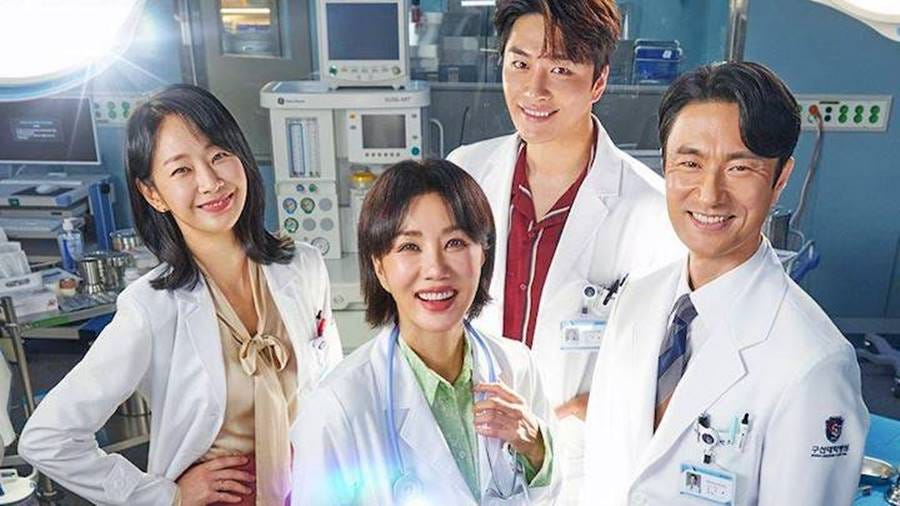
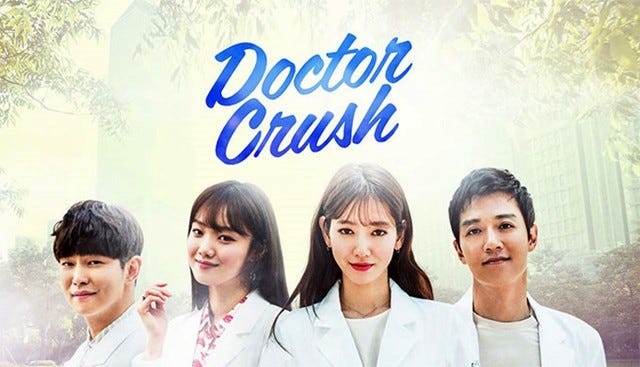
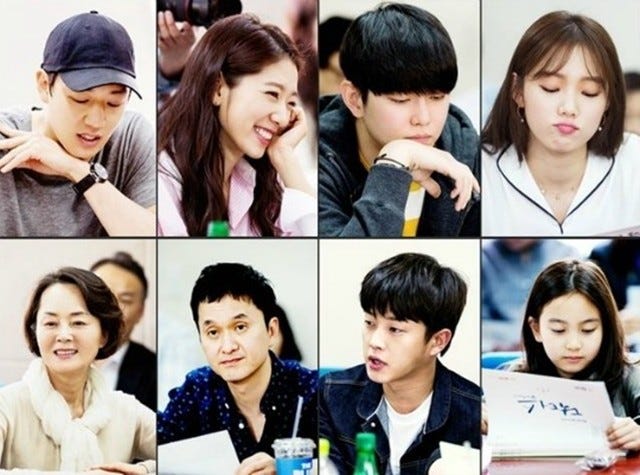
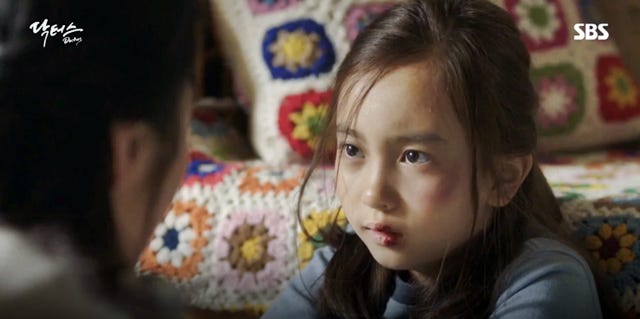
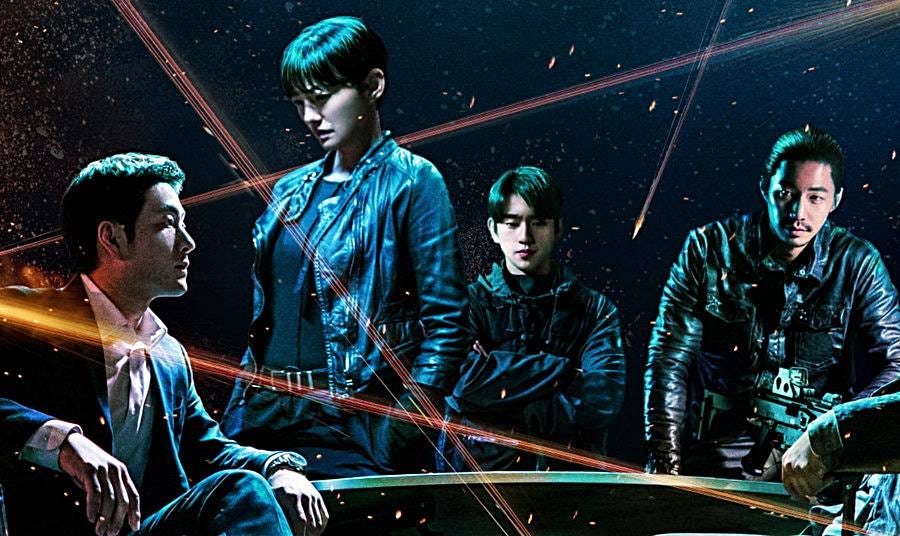
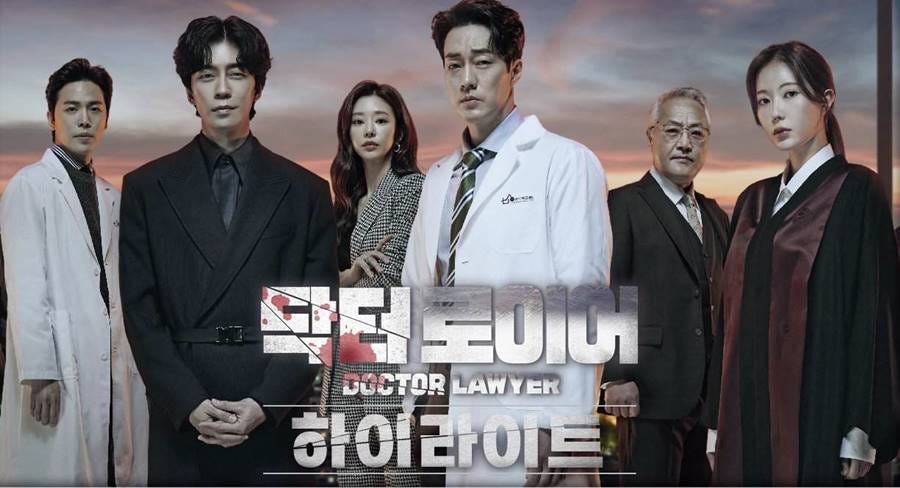
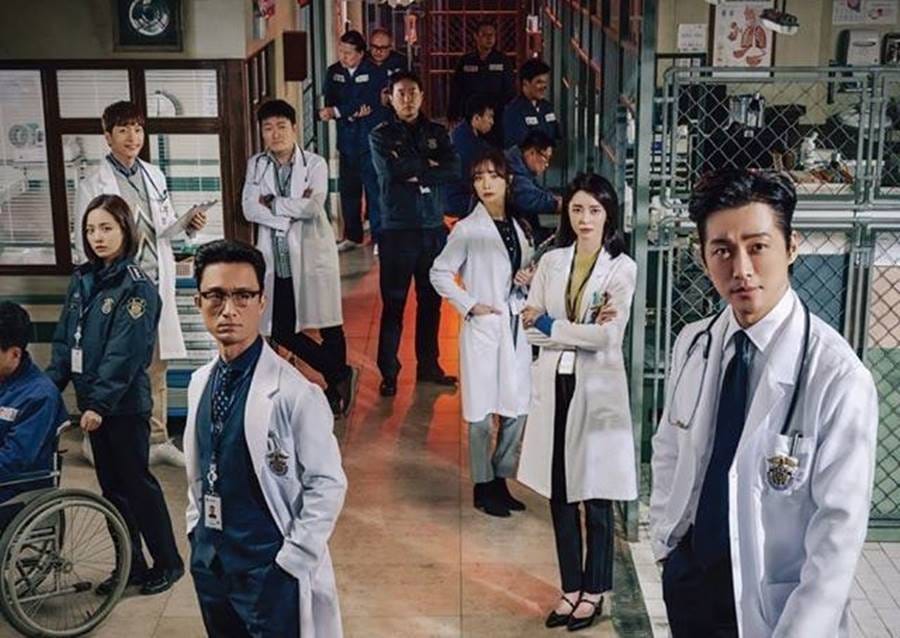
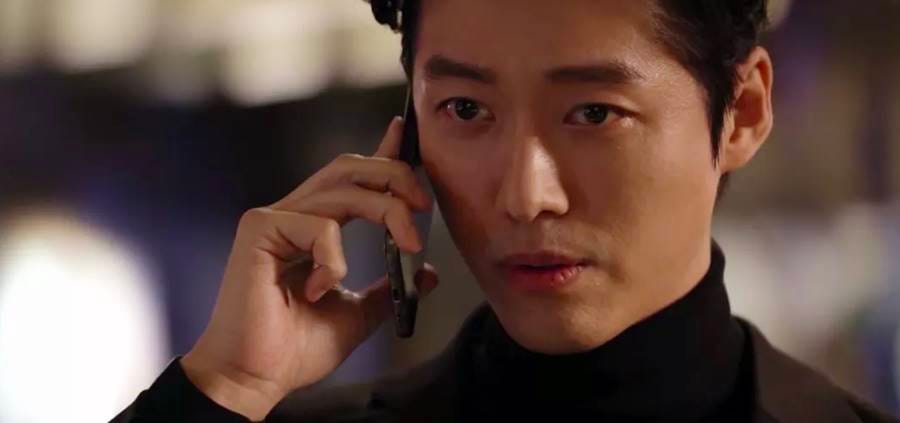
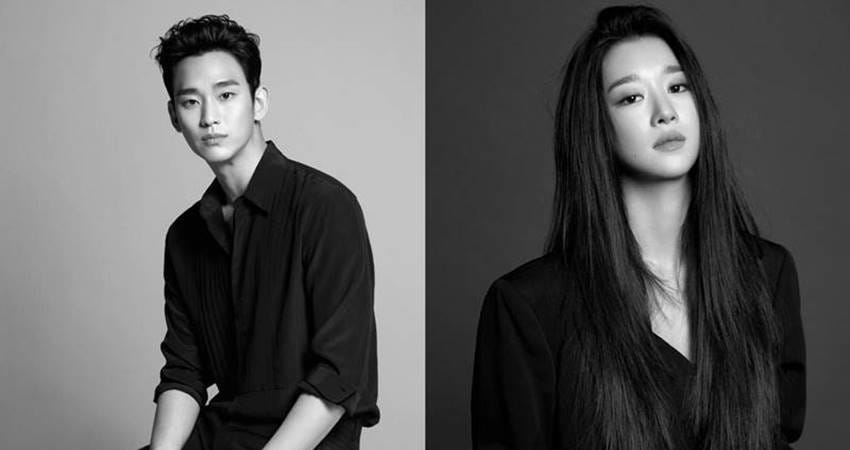
Hi Jae-ha, really love your summaries and insights. Wanted to open a discussion about showrunner because I feel like that's a uniquely Hollywood position in television that doesn't have an apples to apples comparison in Korean drama television. I don't know specifically what the writing/producer structure is on this show and was curious if you used it specifically to this show or who you were referring to.
Can't wait to watch Doctor Cha! Thank you for your review. :)